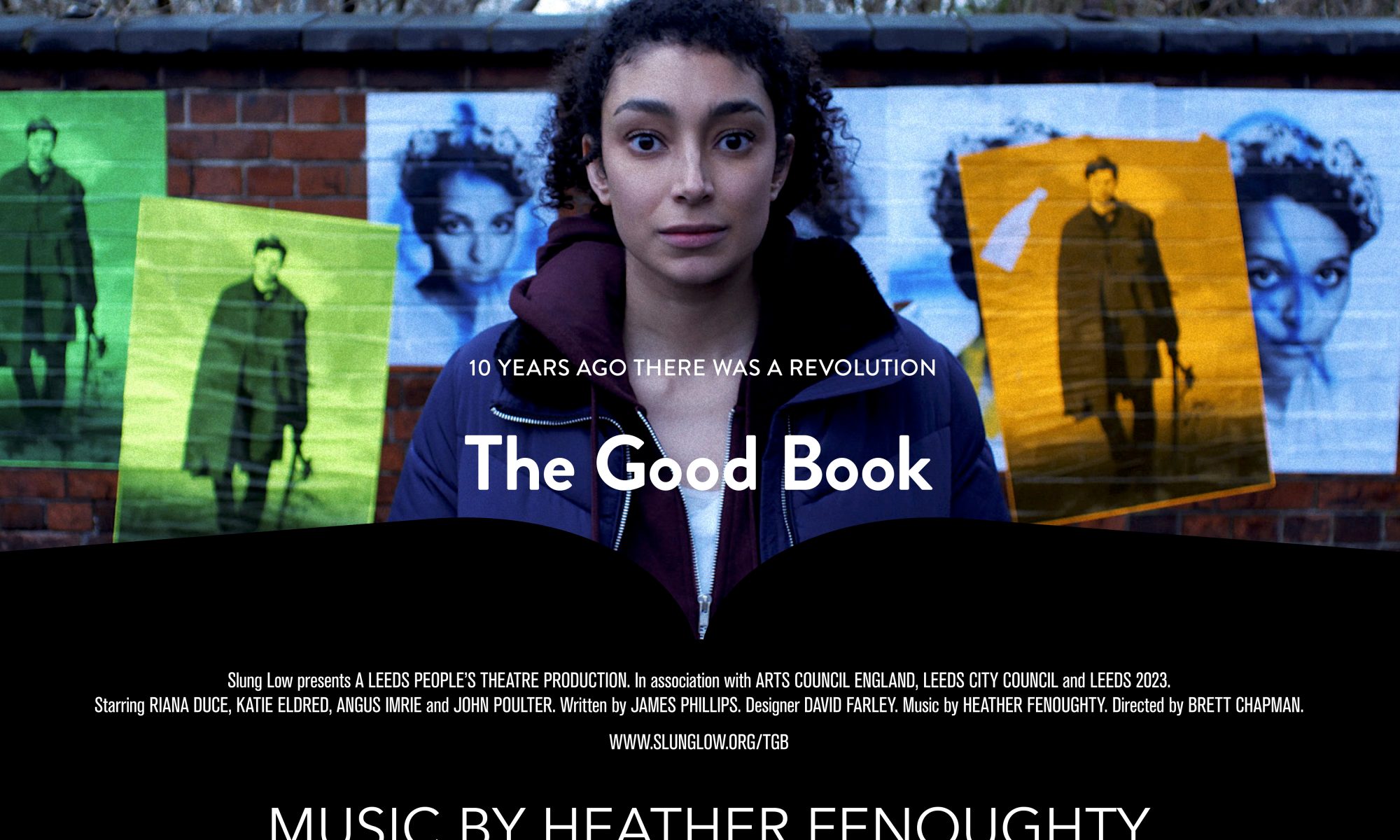The full soundtrack to the film The Good Book is available now from all the online places you get your music.
Play on your favourite streaming or download platform – Spotify, iTunes, etc. – HERE.
I spoke about the final piece of the film (the first in the album), ‘Save The Book’, in my previous post, but if you missed that here’s how the idea for it came about. The decision was essential for the themes of the rest of the film: getting this final piece right meant I could retrofit the score leading up to those final scenes with both a theme and a motif that would coalesce (apparently both seamlessly and effortlessly!) into that final moment. The entire score would continuously, even if rather subtly, push the character to her final truth and action (or, at least, this is what I attempted).
The final scene needed music with an ancient resonance, something familiar but not cliche. After some digging, I settled on adapting Hildegard von Bingen’s ’Spiritus Sanctus Vivificans’. In english the title translates as ‘Holy Spirit gives life’ – it has obvious religious overtones (Hildegard was a nun), which felt right for the film’s themes around fundamentalism. However, the lyrics themselves have a really personal, almost mystical, sense of spirituality.
Here’s loads more information from the International Society of Hildegard von Bingen if you’d like to know more about the music and this fascinating polymath badass businesswoman.
Theme = a full piece, usually with all the elements of recognisable melody, harmony and rhythm that is repeated in both its original and varied forms through the film’s score to flag up an important repeated story strand – could be character, a place, an event…
eg Rey’s theme from Star Wars: The Force Awakens
Motif = short for ‘leitmotif’ or ‘leitmotiv’, it’s a recognisable short melodic or sound fragment that may or may not be extracted from a theme. Usually melody or rhythmic pattern. Serves a similar purpose to the theme: to draw attention to important moments in the story.
eg the ‘idee fixe’ (another term for leitmotif) from Berlioz’s Symphonie Fantastique.
The song was performed beautifully and recorded by Caroline Clarke in her home studio. We worked together remotely – the Covid-19 crisis was just starting to take hold of the UK, with lockdown imminent only a few weeks later. I’ve been working with remote session artists for all of my composing life, but this ability to work with great musicians all over the world was thrown starkly into the spotlight when it became the only way to work with them. We had no choice. It was a strange feeling.
I used the first few notes of Hildegard’s piece as a motif to subtly underline the significance of the mysterious book whenever mentioned, as if it was calling to her, willing her on to save it.
I used the start of the first and second phrases – labelled 1 and 2 here – as the Love theme.


Eagle-eared listeners will notice a little discrepancy! In phrase 2, there’s an extra F in Caroline’s recording – this is typical of very old music in that a lot can be left to the performer’s artistic discretion in interpreting an old and ambiguous manuscript. I wrote the Love theme based on the score without the extra optional F, shown here as a grace note. Caroline’s recording came after the Love theme was written, and she chose to put it in. I loved it so it stayed – composer’s prerogative.
In those final scenes we hear this full piece, edited and arranged to fit a more modern setting of synths, sweeping strings and solo violin.
After the film ends, and we move to the credits, I doubled, tripled and quadrupled Caroline’s vocals, transposing them so that she harmonises herself. Though it’s not in the script, I’m suggesting Avalon has shared the words of hope within the book to others, who have similarly passed it on, those extra voices now working in harmony to spread that same message.
The film was written by James Phillips, directed by Brett Chapman, produced by Slung Low and Leeds People’s Theatre. It features a cast of over a hundred including professional actors and community members. It tells the story of a young woman, Avalon, caught between religious factions in a war-torn not-to-distant future, ten years after a violent revolution*.
She tries desperately not to take sides, but as tensions rise she must accept her fate to save a precious artefact (a book of poetry) from a library under threat of destruction.
*the same revolution played out in Camelot: The Shining City, at Sheffield Crucible (2016). That was an epic, site-specific, headphone, promenade play.
The Guardian
Beneath it all, Heather Fenoughty’s score and Matt Angove’s sound design generate a constant rumble of unease.
Catherine Love – 30 Apr, 2020
A Younger Theatre
Heather Fenoughty’s score is a wonderfully stylish feature of this film adding a theatrical but also other-worldly element of tension.
Mirren Wilson – 30 Apr, 2020
The Stage
Brett Chapman’s direction and Heather Fenoughty’s music combine to evoke an oppressive and intimate atmosphere…
Fergus Morgan – 30 Apr, 2020
Watch the film, The Good Book, here.

